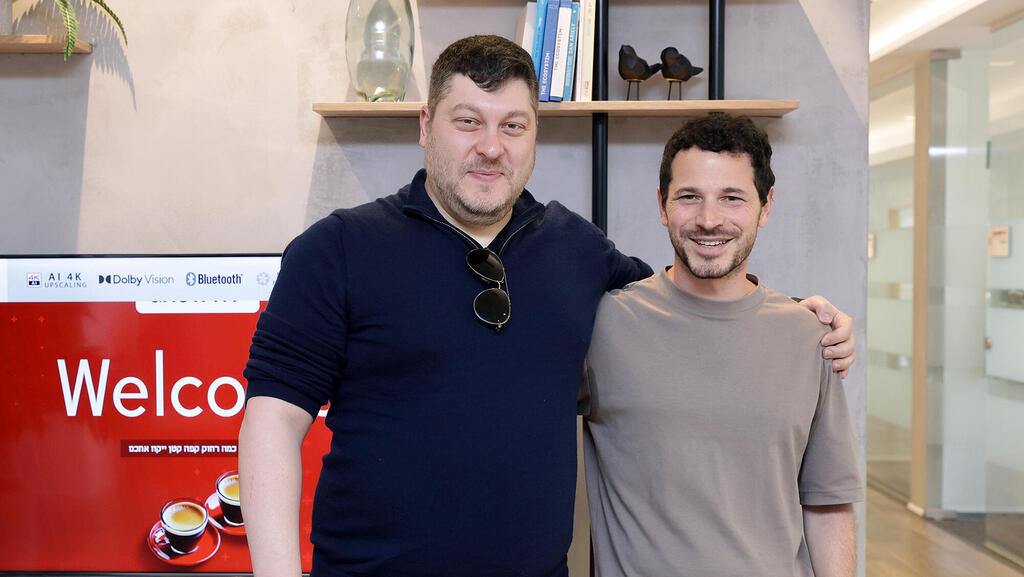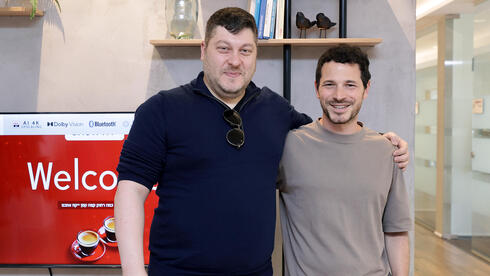
"The biggest challenge for Israeli entrepreneurs is transitioning to the US market"
Michael Reitblat, CEO and founder of Forter, spoke with Assaf Frayman, CEO of Octi, as part of the Growth+ project by Calcalist and Poalim Tech.
In a candid exchange bridging two ends of the startup lifecycle, Forter founder and CEO Michael Reitblat sat down with Octi CEO Assaf Frayman as part of Calcalist and Poalim Tech’s Growth+ initiative. Their conversation—one between a seasoned enterprise veteran and a founder tackling the U.S. healthcare system—offered insights into storytelling, market fit, and the unique challenges Israeli entrepreneurs face when going global.
Michael, tell us about a crisis you faced early on, and what you learned that could help first-time founders.
Reitblat: “The biggest challenge for Israeli entrepreneurs in the enterprise space is transitioning to the U.S. market. You may start in Israel, but to sell effectively, you have to move to the U.S., hire locally, and learn how to manage American sales teams.
“We made some big mistakes—hiring the wrong people, giving them tools that didn’t match the actual problem we were solving, and watching those efforts fail. That made us question whether our product even had a market fit.
“One key lesson: companies don’t buy from companies—people buy from people. You need to deeply understand the person in front of you and their specific pain point. That’s what you solve.”
Assaf, what has been your biggest challenge this year?
Frayman: “We’re constantly operating under uncertainty. The problem we’re trying to solve is clear and real, but everything else—our assumptions, our direction—changes quickly.
“We’re in a cycle of testing, pivoting, and rapid learning. The hardest part is knowing when to take feedback seriously and when to ignore it. Not every opinion should send you off-course. The real challenge is identifying what matters and what doesn’t.”
What did you learn from each other?
Frayman: “I learned the importance of storytelling. It’s not enough to build a solution—you have to explain the problem, the solution, and who you are, in a way that even someone unfamiliar with the market will understand and believe in. That clarity can make or break your pitch.”
Reitblat: “I was struck by the sheer size of the healthcare sector. I live in the U.S. and have used the system, but it hadn’t hit me how vast it really is—it's six times larger than the global advertising market. If the U.S. healthcare system were its own economy, it would be the fourth largest in the world. That scale presents a massive opportunity.”
Was there anything surprising or interesting you learned about each other?
Frayman: “Michael has lived all over—San Francisco, New York, Texas, London, and more. That global exposure shapes how he thinks and leads.”
Reitblat: “I was surprised to learn that Assaf studied medicine before moving into high-tech. In the U.S., it’s common for physicians to shift into sectors like healthtech—but in Israel, that’s still relatively rare. It gives him a unique perspective.”
Related articles:
Michal Kissos Hertzog, CEO of Poalim Tech and the initiator of the Growth+ project, said in the conversation: “In my conversations with entrepreneurs, the theme that comes up again and again is how to build a solution that’s simple enough – to test whether the idea is even worth pursuing. Many entrepreneurs invest in building a product before they know whether anyone actually needs it, and that’s a costly mistake.
“What matters is building only what’s necessary to test the core assumption. Nothing more. How to get 90% of the value with 10% of the effort. Work incrementally. Prove the need, before investing in complexity. We saw this same importance in the stories of the more experienced entrepreneurs in the project as well. Early simplicity prevents costly mistakes later on.”
